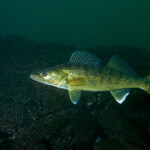Norway tries to regain lost ground in China
Aside from moving to the commercial capital of Shanghai in January, Norway Seafood Council (NSC)’s China representative Sigmund Bjorgo is planning to up the ante in marketing terms in 2013.
Bjorgo is expecting sales in China will be up 15 percent in 2012 compared to 2010 figures — he doesn’t compare with 2011, given how sales tanked due to newly stringent veterinary inspections faced by Norwegian salmon from February 2011. While 15 percent would be respectable in most industries, it pales next to the 70 percent growth that the council had projected for China before sales slumped in the midst of Chinese official displeasure at the awarding of the 2010 Nobel peace prize to a Chinese dissident writer. Actual salmon consumption in China did in fact grow 70 percent a year over the 2010-2012 period, Bjorgo believes.
The new marketing push may be a response to continued trouble in China for exporters from Norway, which is still getting the diplomatic cold shoulder from China since the award of the Nobel peace prize. Aside from moving to Shanghai (which he sees as more of a trend-setting and corporate hub than Beijing) Bjorgo this year appointed a new public-relations agency to handle both the media and in-store marketing campaigns in China for the NSC. “We want to increase the distribution of our logo and heritage … my big dream is that consumers in China will never again buy only salmon sashimi, rather they will buy Norwegian salmon sashimi.”
Two years ago, Norway had a 90 percent market share in China’s fresh salmon sales and has seen that shrink. Bjorgo points to a huge investment by Norway in growing salmon consumption and its own market share, some of which it has now lost to Scotland and the Faroe Islands, as well as (to a lesser extent) frozen Chilean Atlantic salmon product. Chilean product has “come back strongly,” he says.
Bjorgo expects Chinese salmon consumption to grow 30 percent year on year in 2013. “We hope Norway will get its share. And I hope Norway takes back its share … I’m hopeful but not confident.” Long term, the outlook is perhaps more positive: the NSC expects that China will become the world’s leading market for Norwegian salmon and will continue to grow at current rates until 2020. The biggest market for Norwegian salmon currently is Russia — demand which Bjorgo believes is explained by modernization and increased geographical reach of the country’s retail sector.
Clearly working hard to understand the Chinese market, this summer Bjorgo hired researchers to survey and understand China’s growing Japanese restaurant sector: they talked to 175 managers and visited or called 2,600 restaurants — many of them parts of chains like Matsuko and Golden Jaguar.
Bjorgo says the biggest surprise from the survey for him was the sheer number of Japanese-style restaurants in China, from the cheaper Tang Katse Ramen chain (“they don’t so much serve sashimi so are not of interest to us”) to the more expensive sashimi establishments like Golden Jaguar. The research also showed how mainland China remains predominantly a raw salmon market — very little cooked or smoked product is consumed. “This is very unique, compared to Japan or Europe where a large percentage of cooked product is consumed.”
Likewise, much of China’s salmon consumption happens in high-end sashimi restaurants with much less evidence of sushi, which is seen as a cheaper, more filling product. “Five years from now when sashimi is more established then sushi is likely to follow.”
Attempting to capture the home market, Norwegian promotional efforts in 2013 will also include recipes posted on NSC’s Chinese language micro-blog service, as well as cooking demonstrations and tastings at the point of sale. “We focus on weekends, because that’s when most hypermarket sales happen, it’s when people want to treat themselves.”
Hypermarket offerings of Pacific product remain very limited in China. Local consumers and chefs are not yet able to distinguish between Atlantic and Pacific, says Bjorgo, who welcomes Pacific players as a way to increase local knowledge of salmon.






Share